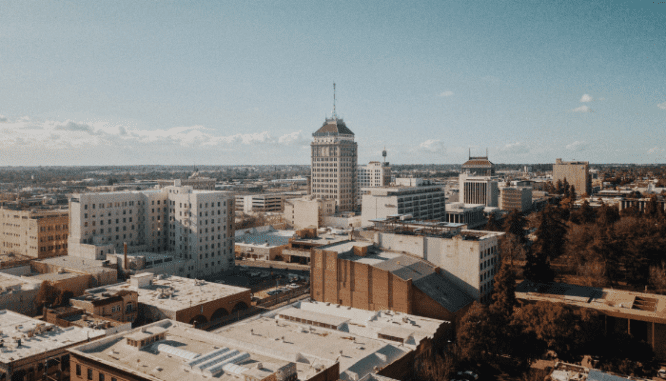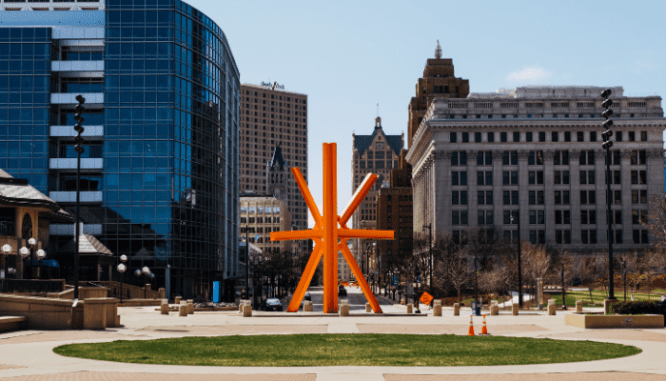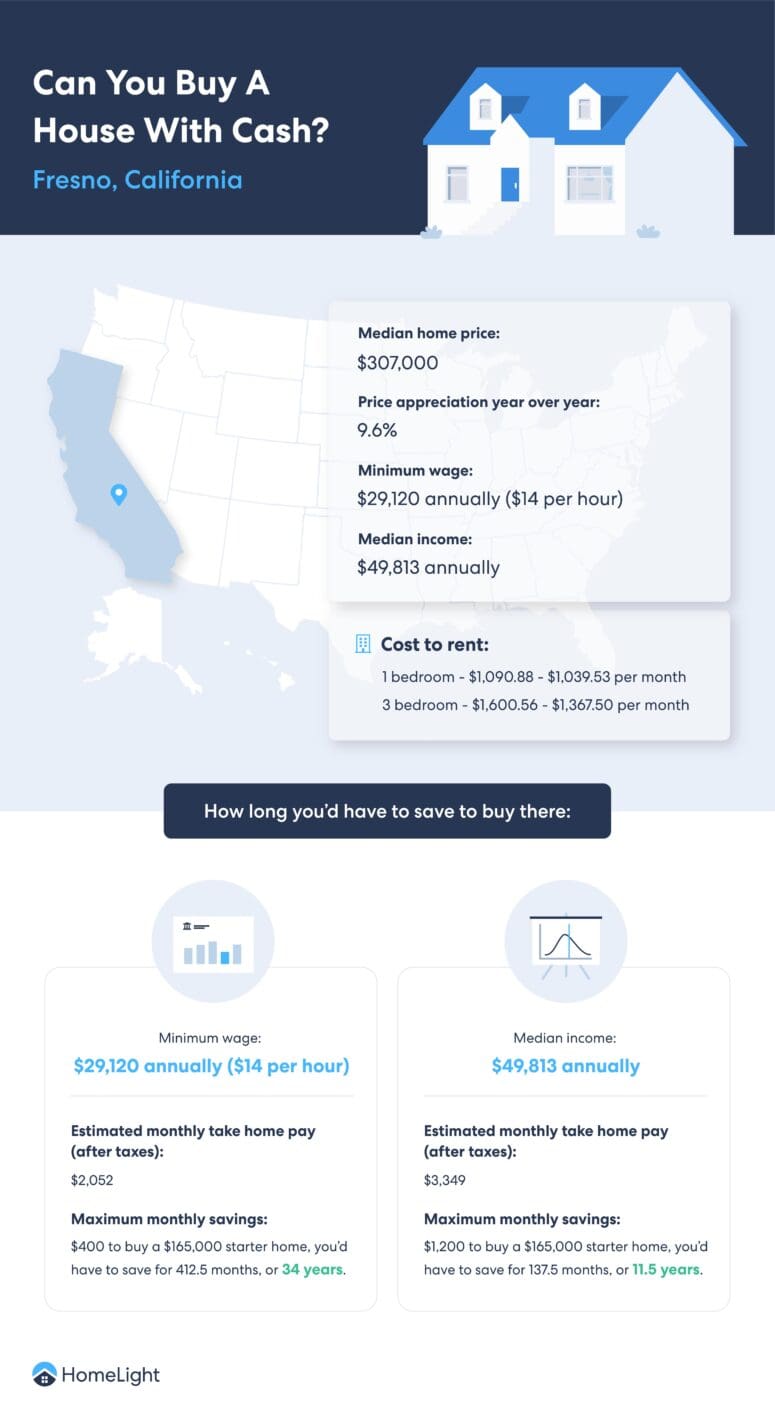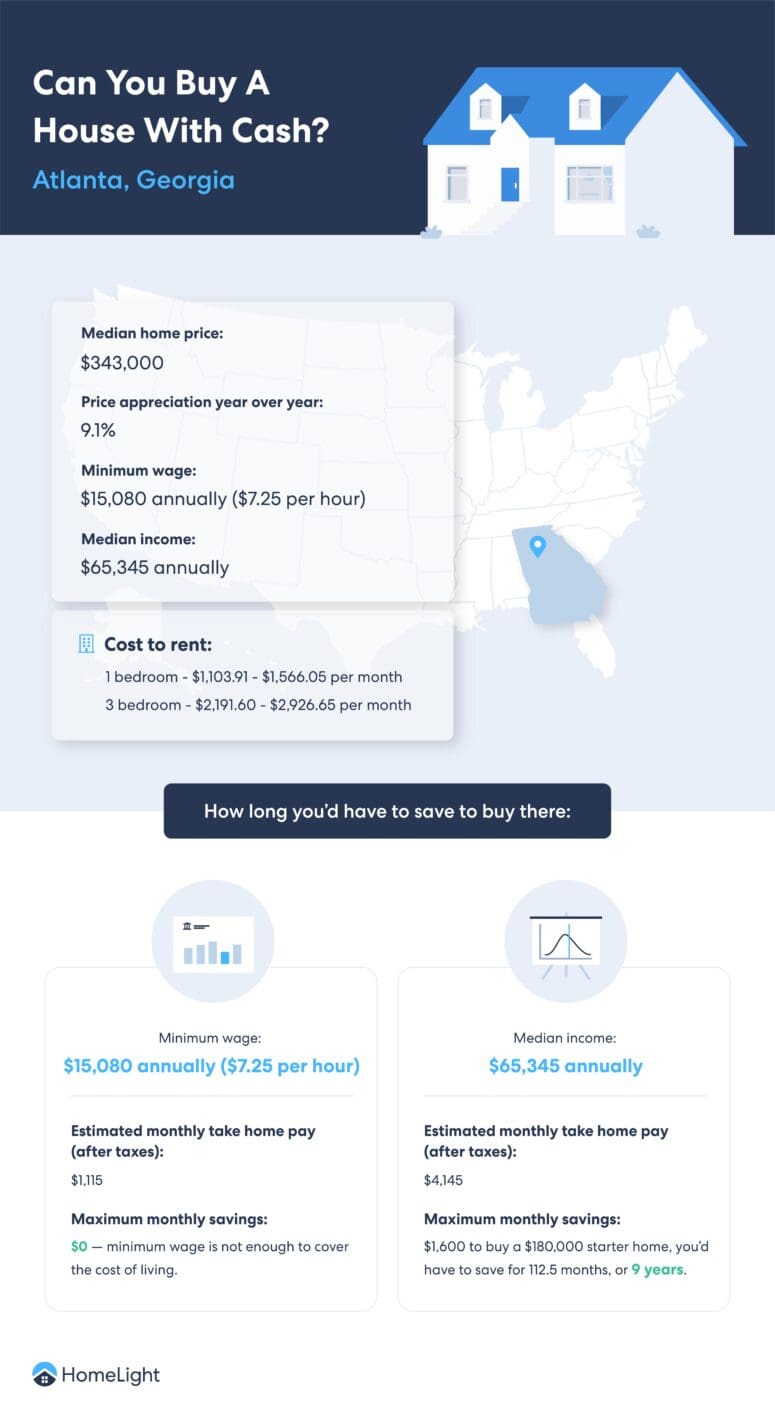Can You Buy a House With Cash? Maybe, But Here’s What You’ll Sacrifice
- Published on
- 8 min read
-
 Chelsea Levinson Contributing AuthorClose
Chelsea Levinson Contributing AuthorClose Chelsea Levinson Contributing Author
Chelsea Levinson Contributing AuthorChelsea Levinson, JD, is an award-winning content creator and multimedia storyteller with more than a decade of experience. She has created content for some of the world’s most recognizable brands and media companies, including Bank of America, Vox, Comcast, AOL, State Farm Insurance, PBS, Delta Air Lines, Huffington Post, H&R Block and more. She has expertise in mortgage, real estate, personal finance, law and policy.
Looking to buy a house, but not so interested in taking out a mortgage loan? And curious whether you can buy a house with cash? You’re not alone. February 2020 data show cash buyers make up anywhere between 40% and 57% of the real estate market, though many of these buyers are investors.
The reality is, buying a home in cash is out of reach for most Americans. With stagnating wages, the rising cost of living, and home prices rising so quickly — often outpacing what people can save — it’s more challenging than ever to buy a home with cash.
If you’re planning to avoid a mortgage and save up for a home, it’s wise to think about how long it might take you to reach your goal . . . and what you might sacrifice along the way.
Namely: more equity in your home, which builds your wealth over time as you pay down your mortgage.
“The best way to build wealth is to become a homeowner, not wait five years to be one,” shares top California real estate agent Daniel Beer.
He cautions that waiting could mean missing out on a great opportunity to build wealth in your portfolio today, rather than tomorrow.
“You’re trying to save up how much money? How long is that going to take? That’s money you’re saving up that’s not invested properly in other areas,” Beer explains.
“Plus the appreciation you’re losing from the market, plus the mortgage write-off that you’re losing.”
With mortgage rates at historic lows, Beer says that early 2021 is a great time for creditworthy buyers to jump into home ownership using financing. Mortgages are cheap — perhaps cheaper than they’ve ever been.
Meanwhile, home prices are surging, with increasing demand and low inventory creating strong seller’s markets across the country.
All of that is to say: Waiting until you save enough to buy a home in cash could end up locking you out of homeownership all together.
To illustrate the point, let’s walk through a few mid-sized cities with varying median home prices to figure out how much you’d need to save to buy a home in cash, and roughly how long it would take you.
Fresno, California
City and market stats
Median home price: $307,000
Price appreciation year over year: 9.6%
Minimum wage: $14 per hour, or $29,120 annually
Median income: $49,813
Cost to rent:
- 1-bedroom, city center: $1,090.88
- 1-bedroom, outside city center: $1,039.53
- 3-bedroom, city center: $1,600.56
- 3-bedroom, outside city center: $1,367.50
Transit costs:
- Public transit monthly pass: $48
- Driving a car, monthly (including gas): $419.38
Average price of a meal out:
- Meal at inexpensive restaurant: $13.50
- Three-course meal for two at mid-range restaurant: $48
Utility costs:
- Basic utilities (heat, electric, gas, water, etc.): $207.23 for 915 square-foot-apartment
- Internet: $67.92
Cost of living for single person: $878.03 without rent
So, let’s assume you do everything possible to save money. You forgo a car for public transit, live with roommates, and eat and go out for entertainment minimally.
If you rent a three-bedroom apartment with two roommates outside the city to save money, that’s $455.83 per month. So, your total cost of living including rent would be:
$878.03 (cost of living) + $455.83 (rent) = $1,333.86
Note that this number doesn’t include insurance, healthcare costs, or monthly debts such as credit cards or student loans. So your actual cost of living will likely be higher.

How long you’d have to save to buy there
Minimum wage
Minimum wage: $14 per hour, or $29,120 annually
Estimated monthly take home pay (after taxes): $2,052
If your monthly base cost of living is roughly $1,334, and you’re taking home around $2,052, then let’s assume that after expenses like healthcare and debts, the most you could save is around $400 each month.
To buy a starter home priced at $165,000, you’d be looking at saving for 412.5 months, or 34 years. And that’s not even accounting for how much home prices rise each year.
Needless to say, this would be a tough hill to climb.
Median income
Median income: $49,813
Estimated monthly take home pay (after taxes): $3,349
If your cost of living is $1,334 each month, let’s say you’re able to save $1,200 per month. You’d have to save for 137.5 months, or around 11.5 years — if home prices didn’t inflate at all.
Now let’s look at how much that home would cost in 12 years with the appreciation rate of 9.6% year over year:
Year 1: $165,000 x 1.096 = $180,840
Year 2: $180,840 x 1.096 = $198,201
Year 3: $198,201 x 1.096 = $217,227
Year 4: $217,227 x 1.096 = $238,082
Year 5: $238,082 x 1.096 = $260,938
Year 6: $260,938 x 1.096 = $285,988
Year 7: $285,988 x 1.096 = $313,442
Year 8: $313,442 x 1.096 = $343,533
Year 9: $343,533 x 1.096 = $376,512
Year 10: $376,512 x 1.096 = $412,657
Year 11: $412,657 x 1.096 = $452,272
Year 12: $452,272 x 1.096 = $495,690
As you can see, saving for 11.5 or even 12 years wouldn’t get you close to buying a home in cash — not with the market outpacing what you can save.
One thing to note, though, is that housing markets don’t always appreciate steadily. Home values can drop for various reasons (as they did in the aftermath of the Great Recession), and appreciation can slow down. So the market may not appreciate indefinitely at 9.6% year over year.
But in general, home prices do tend to appreciate over time, so even if you’re able to save a nice chunk of change each month, it may not ever be enough to buy you a home in cash in the future.
Tucson, Arizona
City and market stats
Median home price: $257,500
Price appreciation year over year: 19.2%
Minimum wage: $12.15 per hour, or $25,272 annually
Median income: $43,676
Cost to rent:
- 1-bedroom, city center: $787.73
- 1-bedroom, outside city center: $657.73
- 3-bedroom, city center: $1,441.67
- 3-bedroom, outside city center: $1,217.52
Transit costs:
- Public transit pass, monthly: $48
- Driving a car, monthly (including gas): $396.05
Average price of a meal out:
- Meal at inexpensive restaurant: $14
- Three-course meal for two at mid-range restaurant: $45
Utility costs:
- Basic utilities (heat, electric, gas, water, etc.): $221.75 for 915-square-foot apartment
- Internet: $68.61
Cost of living for single person: $874.45 without rent
Assuming you do everything possible to save money, and rent a three-bedroom apartment outside the city center with roomates, your basic cost of living (not including healthcare and debts) would be:
$874 (cost of living) + $406 (rent) = $1,280 per month
How long you’d have to save
Minimum wage
Minimum wage: $12.15 per hour, or $25,272 annually
Estimated monthly take home pay (after taxes): $1,805
Assuming you could save $300 per month, and you were buying a starter home for around $150,000, it would take you 500 months, or nearly 42 years to buy a home in cash on minimum wage in Tucson.
And that’s if home prices don’t appreciate from where they are now, which is unrealistic considering they’re currently skyrocketing 19.2% each year!
Median salary
Median income: $43,676
Estimated monthly take home pay (after taxes): $2,994 per month
With a cost of living at $1,280, you might be able to put away around $1,000 per month.
So, it would take you 150 months — or 12.5 years — to save $150,000. Of course, as we saw from our Fresno example above, by the time you did, that 19.2% appreciation rate would put home prices way out of reach.
Milwaukee, Wisconsin
City and market stats
Median home price: $160,000
Price appreciation year over year: 22.1%
Minimum wage: $7.25 per hour, or $15,080 per year
Median income: $42,087
Cost to rent:
- 1-bedroom, city center: $1,126.25
- 1-bedroom, outside city center: $933.08
- 3-bedroom, city center: $2,075.00
- 3-bedroom, outside city center: $1,267.69
Transit costs:
- Public transit pass, monthly: $72
- Driving a car, monthly (including gas): $438.73
Average price of a meal out:
- Meal at inexpensive restaurant: $12
- Three-course meal for two at mid-range restaurant: $65
Utility costs:
- Basic utilities (heat, electric, gas, water, etc.): $138.27 for 915-square-foot apartment
- Internet: $62.89
Cost of living for single person: $1,030.64 without rent
If you did everything possible to save money and lived in a three-bedroom with roommates outside the city center, your monthly cost of living would be:
$1,031 (cost of living) + $423 (rent) = $1,454

How long you’d have to save
Minimum wage
Minimum wage: $7.25 per hour, or $15,080 per year
Estimated monthly take home pay (after taxes): $1,126
Sadly, minimum wage isn’t even enough to cover the cost of living in Milwaukee, much less saving anything for a home.
Median salary
Median income: $42,087
Estimated monthly take home pay (after taxes): $2,823
If you could save $800 per month, you could buy a $75,000 starter home in 94 months, or just under eight years. Not bad!
But when we look at the home appreciation in Milwaukee — a whopping 22.1% each year — it’s unlikely you’d be able to catch up. If this appreciation level were to hold, that $75,000 property could be selling for over $370,000 in eight years!
Granted, like we mentioned before, it’s unlikely for a market to keep growing at such an impressive clip. But it’s equally as unlikely that a $75,000 property will be selling for anything close to $75,000 in eight years.
Even at a much lower market appreciation rate, you’d still be looking at a similar property costing well over $100,000 by that point.
Baltimore, Maryland
City and market stats
Median home price: $196,000
Price appreciation year over year: 22.5%
Minimum wage: $11.75 per hour, or $24,440 annually
Median income: $51,000
Cost to rent:
- 1-bedroom, city center: $1,611.60
- 1-bedroom, outside city center: $1,057.47
- 3-bedroom, city center: $2,353.33
- 3-bedroom, outside city center: $1,837.50
Transit costs:
- Public transit pass, monthly: $72
- Driving a car, monthly (including gas): $390.36
Average price of a meal out:
- Meal at inexpensive restaurant: $15
- Three-course meal for two at mid-range restaurant: $65
Utility costs:
- Basic utilities (heat, electric, gas, water, etc.): $146.27 for 915-square-foot apartment
- Internet: $73.39
Cost of living for single person: $964.13 without rent
So, with all the money-saving measures put in place, and a three-bedroom apartment outside the city center with roommates, you’d be looking at a cost of living of:
$964 (cost of living) + $613 (rent) = $1,577
How long you’d have to save
Minimum wage
Minimum wage: $11.75 per hour, or $24,440 annually
Estimated monthly take home pay (after taxes): $1,654
Unfortunately, with a cost of living at $1,577 per month — not including healthcare costs or monthly debts — Baltimore’s minimum wage wouldn’t leave you any breathing room to save for a home in cash.
Median wage
Median income: $51,000
Estimated monthly take home pay (after taxes): $3,256
If you could save $1,100 per month, you could purchase a $75,000 starter home in around 68 months, or just over five-and-a-half years. This may not seem like a bad deal: Wait five years, forgo the interest of a mortgage. In actuality, you could end up disappointed.
With the market appreciating 22.5% each year, that home will likely cost a lot more in half a decade. If the market keeps appreciating at this rate, you could be looking at a home that costs more than $206,000 in five years.
Atlanta, Georgia
City and market stats
Median home price: $343,000
Price appreciation year over year: 9.1%
Minimum wage: $7.25 per hour, or $15,080 per year
Median wage: $65,345
Cost to rent:
- 1-bedroom, city center: $1,566.05
- 1-bedroom, outside city center: $1,103.91
- 3-bedroom, city center: $2,926.65
- 3-bedroom, outside city center: $2,191.60
Transit costs:
- Public transit pass, monthly: $95
- Driving a car, monthly (including gas): $377.30
Average price of a meal out:
- Meal at inexpensive restaurant: $14
- Three-course meal for two at mid-range restaurant: $50
Utility costs:
- Basic utilities (heat, electric, gas, water, etc.): $167.95 for 915-square-foot apartment
- Internet: $70.52
Cost of living for single person: $1,017.04 without rent
With a shared three-bedroom, and minimal expenses, your Atlanta cost of living would be:
$1,017 (cost of living) + $731 = $1,748 monthly

How long you’d have to save
Minimum wage
Minimum wage: $7.25 per hour, or $15,080 per year
Estimated monthly take home pay (after taxes): $1,115
Atlanta’s minimum wage isn’t even enough to cover the basic cost of living, never mind save for a home.
Median salary
Median income: $65,345
Estimated monthly take home pay (after taxes): $4,145
Assuming you could save $1,600 per month, and were planning to buy a starter home that costs $180,000, you’d be saving for 112.5 months, or more than nine years.
In nine years, that 9.1% appreciation rate would put the home’s price at more than $394,000. It would be nearly impossible for you to keep up with market appreciation unless the market slowed significantly.

The bottom line
With home prices increasing year over year, it’s challenging to save up enough cash to buy a house, even if you work diligently for years. For minimum wage or median salary earners, it’s darn near impossible.
Sometimes, leveraging the power of home financing is your best move for building wealth (and if you’re in a competitive cash-is-king market, you might consider using our Cash Offer program).
“If you look at the most sophisticated real estate people, they don’t buy with cash,” Beer reveals. They learn to intelligently leverage debt and make it work for them.
To put it even more concisely: If you don’t get in the game, you can’t win.
Sources for market and cost-of-living stats:
- https://www.numbeo.com/cost-of-living/ (cost of living stats)
- https://www.redfin.com/us-housing-market (median home value + y/y appreciation rate)
- https://datausa.io/profile/geo/ (median salary)
- https://smartasset.com/taxes/income-taxes#gNz0hNRDdQ (salary tax calculations)
Header Image Source: (Karolina Grabowska / Pexels)





